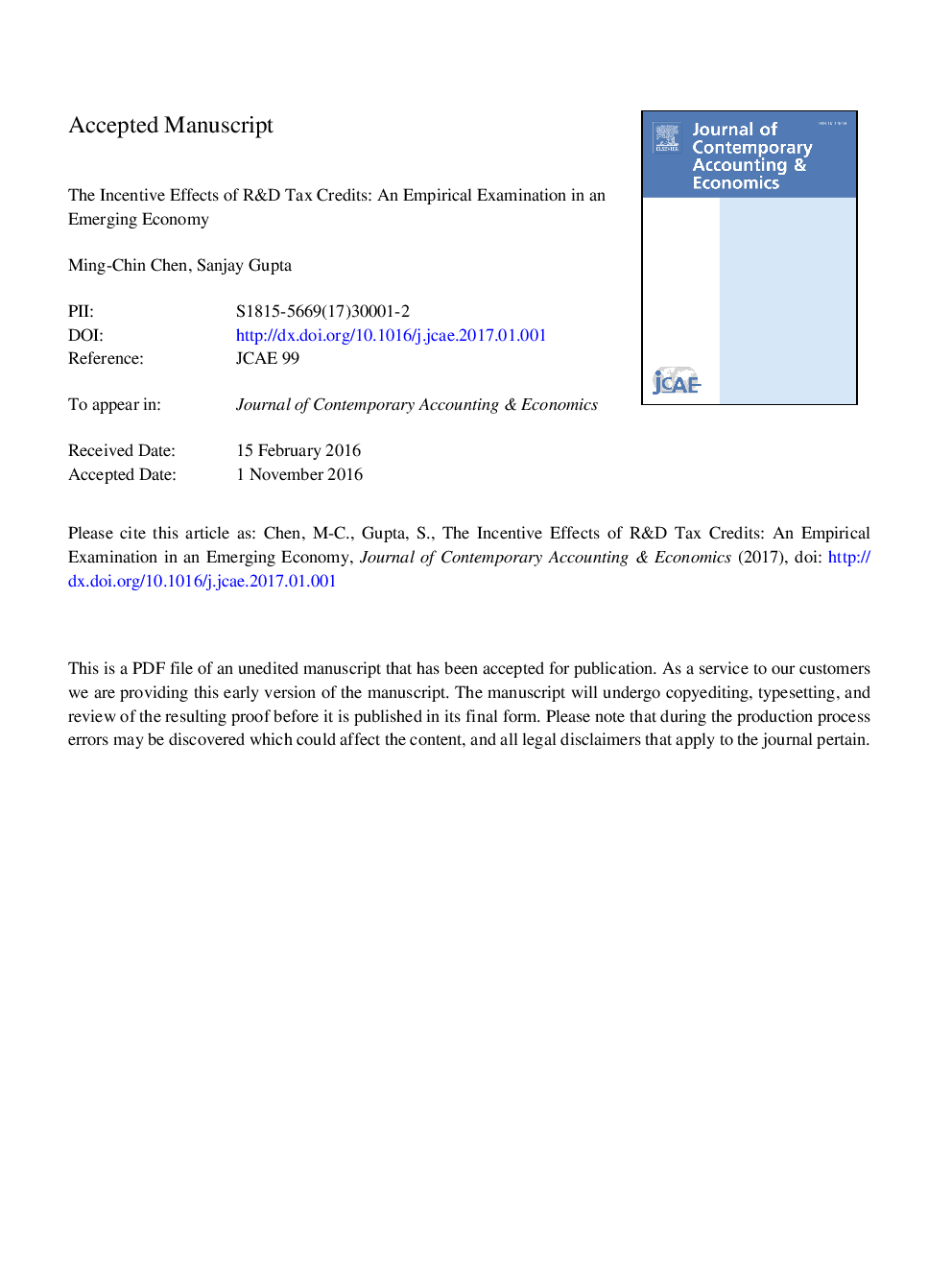| Article ID | Journal | Published Year | Pages | File Type |
|---|---|---|---|---|
| 5092842 | Journal of Contemporary Accounting & Economics | 2017 | 48 Pages |
Abstract
This paper investigates whether an increase in the R&D tax credit rate stimulates firms' incremental R&D spending. We find that the increase in the credit rate has a positive effect on the R&D spending of high-tech firms with taxable status, but does not have the same positive effect on non-high tech firms. These results indicate that tax incentives alone may not be effective to increase R&D spending if firms do not have profitable innovation opportunities. Further, we find that when the tax incentive is structured as a credit based on incremental R&D spending over a moving-average base, firms opportunistically time their R&D spending patterns to obtain additional tax credits, resulting in greater variability in R&D spending and potentially the unintended loss of tax revenues. This study contributes to the ongoing global debate about the efficacy of tax policies toward R&D by providing firm-level evidence from a large cross-section of firms in an emerging economy.
Related Topics
Social Sciences and Humanities
Business, Management and Accounting
Business, Management and Accounting (General)
Authors
Ming-Chin Chen, Sanjay Gupta,
